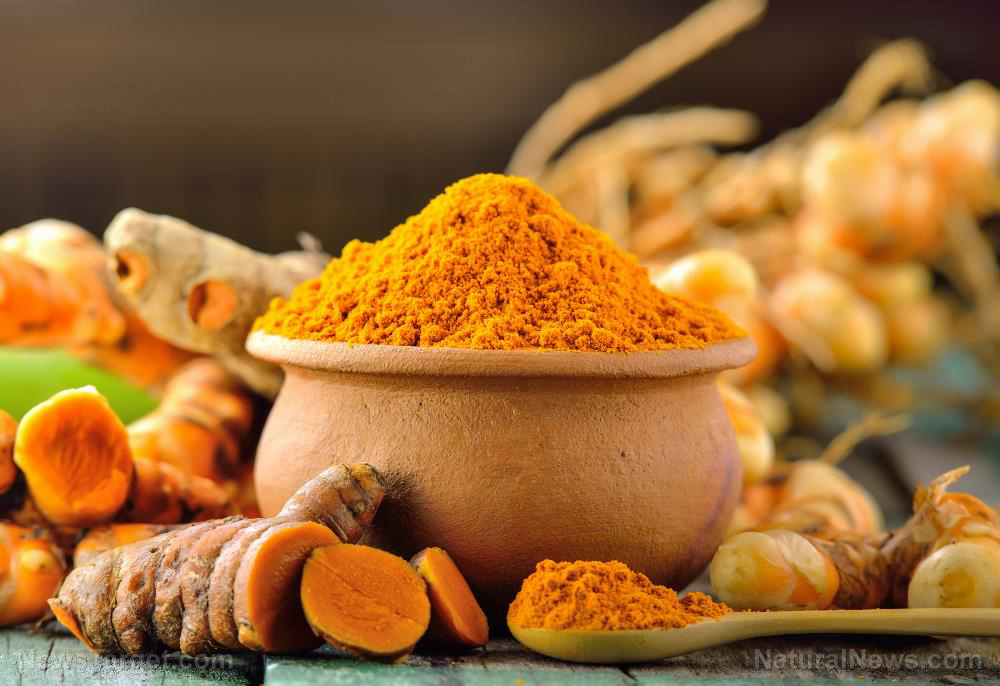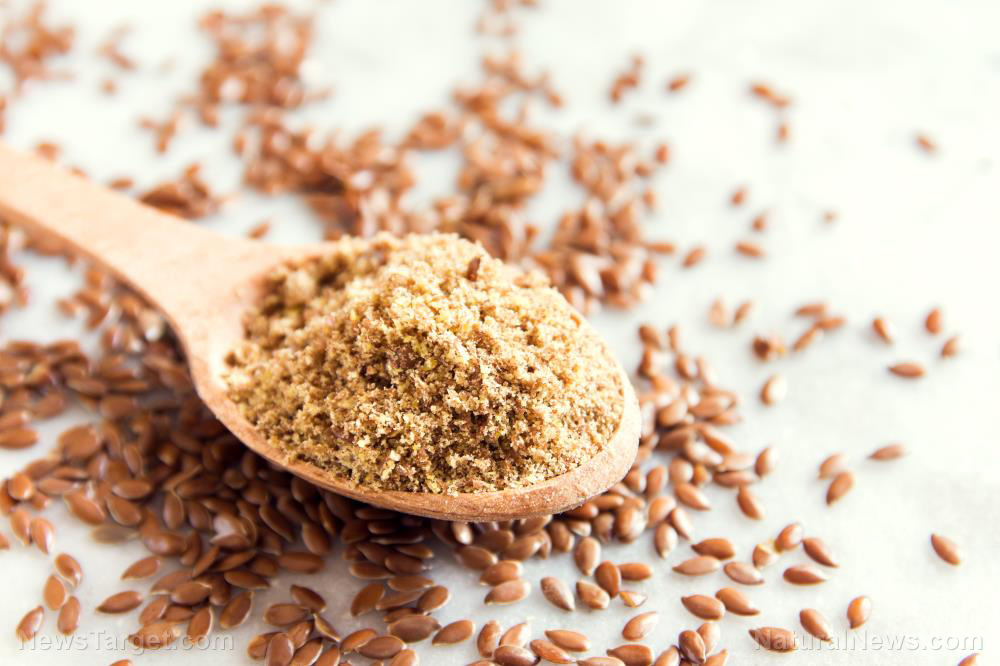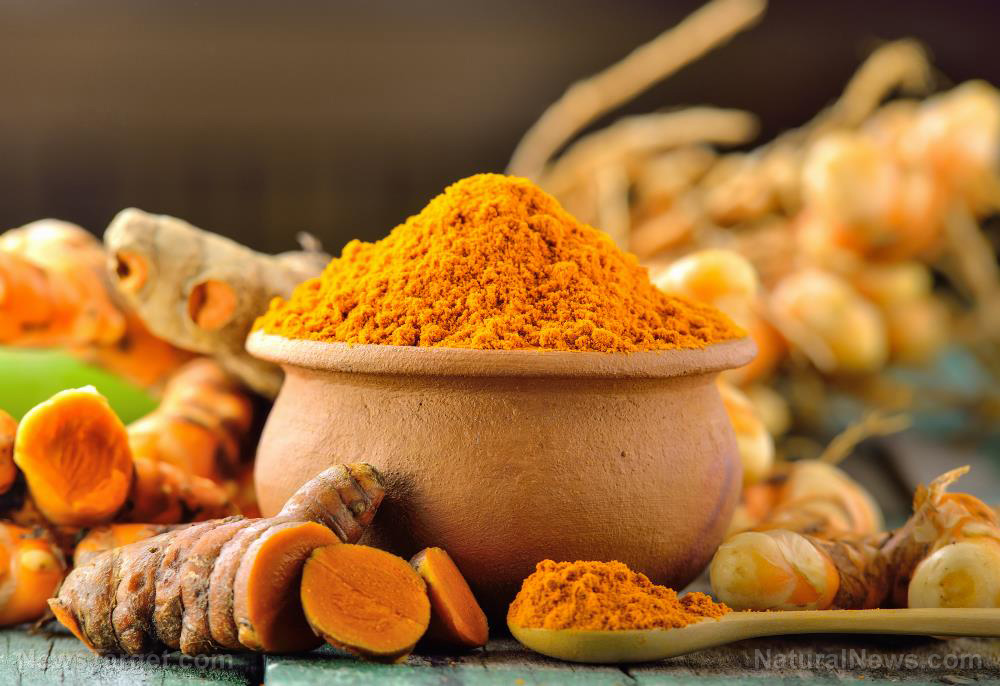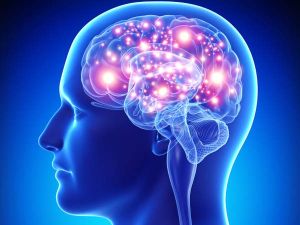Nature Knows and Psionic Success
God provides
Nootropic Products Market Size, Growth, Trends, and Outlook 2016-2024
Albany, NY — ( SBWIRE ) — 10/09/2018 — The term Nootropic is derived from Greek word noos and tropein which means mind and towards respectively. In general Nootropic products are natural and synthetic compounds that can enhance memory, alertness, attention and other cognitive abilities. Nootropic products are alternatively coined as cognitive enhancers and brain boosters for their ability to produce positive effects on brain performances. Nootropic products are gaining a lot of acceptance in recent years as mood enhancers due to growing prevalence of depression and mental fatigue among youths across the globe. Read Report Overview @ https://www.transparencymarketresearch.com/nootropic-products-market.html Nootropic products are a newly emerging category of supplements called as smart drugs aimed at enhancing brain functions and performances. Many students and researches are not only experimenting on the efficacy of the drugs and its probable side effects but are also using some of the approved products such as Modafinil which by 2013 is unfortunately the only available product by prescription. However, there are varieties of other products which can be obtained as supplements without any prescription. These include CDPCholine, Piracetam and either pyritinol or sulbutiamine just to begin with. Some of the other commonly and widely used nootropic products in 2014 encompass Noopept, Pramiracetam, Modafinil, Adrafinil, Aniracetam and Phenylpiracetam among others. Noopept is one of the long considered supplements primarily used to gain number of effective benefits related to synaptic plasticity. Other benefits of Noopept include improved reflexes, mood enhancer, improved logical thinking and controlled anxiety level. This supplement works by stimulating NDMA and APMA receptor sites within the brain that improve the activity of neurotransmitters such as Dopamine, Serotonin and Glutamate among others. Modafinil on the other hand by now the strongest nootropic and must be used with caution. Though it was originally developed for clinical trials […]
Can Sleep Deprivation Lead To A Relapse?

Scientists understand a lot more about sleep today than they did a decade ago, but there are still things to learn about our natural ‘power charging’ state – especially in recovery. Prevention Before Treatment For instance, there is a big difference between the symptoms lack of sleep brings in a healthy brain in comparison to one that’s been touched by substance-use disorder (in most cases the substance doesn’t matter since the addiction is the underlying issue). If a healthy person will experience difficulties in concentration and temporary memory failures, a person dealing with addiction risks a relapse even though they’ve been sober for a while and doing well. While relapsing can be seen as part of the journey to a better life and a more secure self (both emotionally and physically), it is not something anyone wants to go through more than needed. Of course, there are ways to come out of the experience a bit more knowledgeable, but I always recommend prevention before treatment. But, to prevent, one needs to understand why a lack of sleep has such devastating effects on a recovering addict in comparison to a healthy person. The Link Between Sleep Deprivation And Addiction The main symptoms of sleep deprivation show up at brain level, impairing judgment, creating confusion, and overall inducing various cravings. For instance, a healthy person who doesn’t have good sleep habits will end up feeling hungry and craving fatty foods and sweets. On the other hand, the cravings of an addict are always related to their drug of choice, and sleep deprivation will only increase the risk of relapsing. When the brain is sleep deprived, you lack control over your own thoughts and cravings. Everything becomes less important than getting your needs satisfied and logical thinking is usually down-voted. So, if […]
Yummy superfoods that even beginner gardeners can plant today

( Natural News ) Fruits and vegetables are known for being rich in beneficial substances, such as antioxidants, vitamins, and minerals. To ensure that food being consumed is safe, these crops can easily be planted in your backyard without the use of pesticides, synthetic fertilizers, and other toxic chemicals. While organic and pesticide-free fruits and vegetables may be available on the market, there are products that claim to be what they aren’t. Some companies intentionally label their products with false claims to increase their market value. This means that people don’t always get what they pay for. Backyard gardening is a fool-proof way of being in control of what’s inside the food you put on the dining table. Here are some superfoods that can easily be planted: (h/t to NewLifeOnAHomestead.com . ) Apples – Although apples can be grown almost anywhere, they may take years to become established. However, the wait is worth it since apples are tasty and rich in fiber, potassium, and vitamin C. Beans – Among the different varieties of beans, green beans are the easiest to grow. These are rich in proteins and folate, which is crucial for red blood cell production and cell growth . Berries – Blueberries, raspberries, and strawberries are easily grown, but they prefer acidic soil. They contain antioxidants and other nutrients that are important for mental and physical health. Broccoli – This cold-season plant is rich in many nutrients including sulfur, which prevents cancer and inflammation. Cabbage – Red and green varieties of cabbage can easily be cultivated. These superfoods are also rich in cancer-preventing sulfur. Carrots – Carrots are known to contain high amounts of an antioxidant known as carotene. Carotene has been proven to prevent cancer and slow down aging. Carrots grow best in the cold and can […]
Why you should REJECT the flu shot and take a SANE approach to immunity

( Natural News ) Bullies and charlatans are everywhere these days. You can find them on the playgrounds, the internet, and even in your own home. They push you around, tell you fictional stories that never really happened, and believe in their lies like they are the God-given truth. Nowhere is this more prevalent than in a conventional doctor’s office during flu season. But you have wised up, right? You’re not playing their “do as you’re told” game, because you have educated yourself enough to ask intelligent questions and are brave enough to confront your doctor on the subject, even if it makes your knees shake. After all, it’s YOU that has to deal with the potential repercussions, whereas the doctor just walks away with more dirty money lining his pocket, while claiming ignorance to any potential injury you may sustain. However, in case you’re still not sure if you should reject the flu shot, consider these three reasons why you should, along with some bonafide ways to improve immunity and get over the flu, naturally. Flu shots haven’t been proven to adequately work The first debate is whether the flu shots actually even work. There’s plenty of anecdotal evidence that it “works” for some and not for others, and those results can vary from year to year. However, the first piece of damning evidence comes from several statements made on the Flulaval vaccine insert itself. These warnings include: “There have been no controlled trials adequately demonstrating a decrease in influenza disease after vaccination with Flulaval.” The power of the elements : Discover Colloidal Silver Mouthwash with quality, natural ingredients like Sangre de Drago sap, black walnut hulls, menthol crystals and more. Zero artificial sweeteners, colors or alcohol. Learn more at the Health Ranger Store and help support this […]
Researchers deploy Forrest Gump in brain study

Some young visitors sit next to a waxwork model of Tom Hanks in the guise of Forrest Gump. It was just like meeting the real thing, they said. Watching the 1994 Tom Hanks movie Forrest Gump may have affected you in strange and unusual ways. British research suggests that throughout the two-hour Hollywood blockbuster the response of your hippocampus, the part of your brain associated with memories, was more likely influenced by subjective event boundaries than by specific transitions between scenes, such as changes in location. This suggests the hippocampus is sensitive to meaningful units of experience rather than perceptual cues. If that is correct, it likely means that the brain region plays an important role in segmenting our continuous everyday experience into discrete events for storage in long-term memory. The research, carried out by Aya Ben-Yakov and Richard Henson at the MRC Cognition and Brain Sciences Unit at the University of Cambridge, UK, is among the first to investigate hippocampal function during a natural experience. The scientists recruited two groups of volunteers. The first was asked to watch Forrest Gump, while the second was shown an abridged version of Alfred Hitchcock’s 1961 television drama Bang! You’re Dead , edited from 30 minutes down to eight. In each participant, the hippocampus responded as the researchers hypothesised it would. “We observed a strong hippocampal response at boundaries defined by independent observers, which was modulated by boundary strength (the number of observers that identified each boundary),” they write in a paper published in the journal JNeurosci . “In the longer film, there were sufficient boundaries to show that this modulation remained after co-varying out a large number of perceptual factors. “The hippocampus was the only brain region whose response showed a significant monotonic increase with boundary strength in both films, suggesting […]
Cancer-fighting cauliflower is having its moment in the spotlight as the new kale

( Natural News ) Cauliflower has been enjoying increasing popularity as of late, thanks to a vast number of research that supports its health benefits. In fact, the vegetable is now being hailed as the “new kale” due in part to its nutritional value. According to New York-based nutritionist and personal trainer Mary Jane Detroyer, cauliflower is now replacing kale as a superfood, due to its versatility as a substitute for rise or potatoes in certain dishes. The vegetable is ideal for people who need to cut back on their calorie content such as obese individuals, diabetes patients and people with high cholesterol, the nutritionist said. “It’s very low in calories, so it’s a great food for weight loss. It can easily be incorporated into many deliciously tempting dishes to seduce you to eat more nutrients and less of the heavy stuff. It can seamlessly stand in for heavier foods like mashed potatoes and rice – and for just a fraction of the calories,” the Nutrition Twins (Tammy and Lyssie Lakatos) also quoted in DailyMail.co.uk . According to the University of Arizona , cauliflower belongs to the cruciferous vegetable family, which includes broccoli, kale and collard greens. The vegetable’s name literally means “cabbage flower” in Latin. Cauliflower originated in Asia Minor, and was eventually cultivated in different parts of the world. Most of today’s cauliflower crops are grown in France, Italy and India as well as China and the U.S. The vegetable’s high nutrition value has prompted health experts to place it among the many varieties of superfoods . The Centers for Disease Control and Prevention (CDC) has already included cauliflower among the top 30 powerhouse vegetables in its Aggregate Nutrient Density Index . Previous research have found that cauliflower promotes strong bones and brain health, improves heart health, […]
Science journals publish intentionally stupid liberal propaganda studies claiming men should anally self-penetrate to “increase feminist values”

( Natural News ) The legitimacy of so-called “higher education” is once again being called into question following the recent revelation that academic journals are now actively publishing ridiculous and completely bogus studies, simply because they support various leftist narratives. A trio of researchers – Helen Pluckrose, a researcher and author; James Lindsay, an author with a doctorate in mathematics; and Peter Boghossian, a philosophy professor – set out to prove that academic bias has all but totally delegitimized the scientific process. And to say they succeeded would be an understatement. According to reports, the three individuals were able to get seven fake studies accepted for publishing, and four of these have already been published online. Seven more are said to be under review, and six others were rejected. So what was the subject matter of the accepted studies? One of them suggests that men should insert objects up their rear ends in order to “decrease transphobia” and improve men’s understanding of “feminist values.” Another of the fake studies claims that men enjoy visiting “breastaurants” like Hooters “because they are nostalgic for patriarchal dominance and enjoy being able to order attractive women around. Another, which we highlighted at Censored.news , claims that dog parks promote “rape culture.” This particular fake study was so outlandish that it did catch the attention of Tori Airaksinen, who after looking into it further discovered that the alleged “author” of the study had lied about her credentials. Pluckrose, Lindsay, and Boghossian ultimately decided in this particular instance “to conclude the project early.” The power of the elements : Discover Colloidal Silver Mouthwash with quality, natural ingredients like Sangre de Drago sap, black walnut hulls, menthol crystals and more. Zero artificial sweeteners, colors or alcohol. Learn more at the Health Ranger Store and help support […]
8 Secrets That Help You Memorize Anything

The human brain has no issue with storage because it has limitless space. But you lose the capacity to recall things as you get older because the brain is protecting you from information overload. You can, however, continue to train your brain to memorize the important things despite the threats of memory loss. Below are some secrets on how you can do it. Here Are 8 Secrets That Help You Memorize Anything “Knowing a little bit more about how your brain works can really help [you] to be a little more compassionate with yourself when it might take you a little more time than another [person] to learn a topic.” – Barbara Oakley 1. Use repetition to keep the information in your head. The brain processes new information in the short-term memory but it can quickly forget if you don’t use the information repeatedly. According to the Ebbinghaus Forgetting Curve , you forget half of what you learn in an hour. That memory reduces to 20 percent by the end of the week. So, you need to transfer this information in your long-term memory through repetition. However, teaching yourself to memorize something for a long time by repetition must be properly timed. You can retain the information better with properly spacing your learning , such as when you’re studying a new language. With short-term memory , to repeat the information you’ve acquired within 20 minutes, eight hours, and 24 hours. With long-term memory, you have to repeat or review this information in 20 minutes, 24 hours, two weeks, and then two months. 2. Teach what you’ve learned to someone else. The Learning Pyramid is a concept that experts developed in the 1960s. It suggested that people could better retain memory at 90 percent if they immediately teach or discuss […]
Plant-based diets and exercise can treat moderate to severe depression and anxiety

( Natural News ) Countless studies have proven that following a healthy diet and exercising regularly can help maintain your physical health. But according to a study published in Complementary Therapies in Clinical Practice, a plant-based diet and physical activity can also help individuals with anxiety and depression. Diet, exercise, and your mental health The researchers involved in this group study set out to determine how an intervention of diet, lifestyle, and behavior modification can help improve the mental health of participants. The 12-week study focused on the effects of a plant-based diet, daily exercise, and mindfulness techniques on 500 male and female adult participants who were diagnosed with chronic moderate to severe depression and anxiety and other conditions. Once the study concluded after 12 weeks, the researchers examined the health outcomes of the participants via self-reported diary entries. The findings revealed that: An intervention that included a plant-based diet, regular exercise, lifestyle and behavior modification can offer significant benefits for individuals who have moderate to severe depression and anxiety. An intervention made up of a plant-based diet, exercise, lifestyle and behavior modification can greatly benefit people who suffer from health conditions such as fatigue, insomnia, and pain. Following a complementary behavior modification program, partnered with conventional weight loss and hypertension protocols, may also offer considerable health benefits for individuals who have anxiety and depression. (Related: There is a direct link between eating raw fruits and vegetables and your mood — this is the easiest way to avoid depression .) The power of the elements : Discover Colloidal Silver Mouthwash with quality, natural ingredients like Sangre de Drago sap, black walnut hulls, menthol crystals and more. Zero artificial sweeteners, colors or alcohol. Learn more at the Health Ranger Store and help support this news site. After analyzing the self-reported […]
Here’s why you should be paying more attention to citicoline, a naturally occurring compound that’s important for brain health

( Natural News ) A lot of people take brain supplements to increase their overall mental performance. One of the major components of these supplements is the nutrient citicoline which, according to existing studies, can help improve different brain functions and brain health . Although citicoline is already found in the body, it should be taken in the form of supplements in order for one to experience its therapeutic benefits. It is initially broken down by the body into choline and cytidine so that it can be absorbed in the intestines. From there, choline and cytidine will cross the blood-brain barrier and will reform into citicoline upon reaching the brain. Benefits of citicoline Citicoline is able to increase the levels of neurotransmitters, such as acetylcholine and dopamine. These neurotransmitters are natural chemicals that are used by brain cells to communicate with each other. Acetylcholine aids in the process of turning short-term memories into long-term ones. Meanwhile, dopamine increases motivation, productivity, and focus. The different brain functions, such as focus and memory, require large amounts of energy. Glucose metabolism and blood flow continuously provide the brain with the energy it needs since the brain cannot store energy. By taking supplements with citicoline, the rate of glucose metabolism and blood flow to the brain are increased. Energy produced by the mitochondria, known as the powerhouse of the cell, is also increased when citicoline is present, especially in the prefrontal cortex. In addition, citicoline also functions as a nootropic, which is a substance that improves brain performance. This includes functions such as memory, intelligence, attention, focus, and motivation. The power of the elements : Discover Colloidal Silver Mouthwash with quality, natural ingredients like Sangre de Drago sap, black walnut hulls, menthol crystals and more. Zero artificial sweeteners, colors or alcohol. Learn more […]
How vitamin D supports brain health and works to reduce depression risk

( Natural News ) Recent research has shown that vitamin D supports overall brain health, and that this vital nutrient can even help relieve depression. Estimates suggest that at least one billion people struggle with vitamin D deficiency worldwide, and another 350 million suffer with depression. While it may not be a cure-all, ensuring that you are getting enough vitamin D can help take the edge off of a depressed mind — and can help support better overall health, too. Multiple studies have shown that there is a direct link between vitamin D deficiency and depression, but vitamin D is needed for much more than that. The “sunshine vitamin,” like other nutrients, plays multiple roles in the human body. For example, vitamin D is essential for healthy bones, as well as a healthy brain. Understanding vitamin D and depression As Be Brain Fit reports , ensuring your brain is healthy is the “first line of defense” when it comes to keeping depression at bay. Vitamin D is essential for brain health across the lifespan. It’s essential for proper brain development in the womb and early childhood, and it helps keep your brain healthy as you age by fending off cognitive decline. The benefits of vitamin D can be felt regardless of age. In seniors, the benefits of vitamin D are especially notable. As sources explain, vitamin D deficiency in older adults is linked to multiple brain disorders including depression, dementia, borderline disorder and schizophrenia. Conversely, studies have shown that supplementing with vitamin D can boost mood, improve memory and support overall brain function. 100% organic essential oil sets now available for your home and personal care, including Rosemary, Oregano, Eucalyptus, Tea Tree, Clary Sage and more, all 100% organic and laboratory tested for safety. A multitude of uses, from […]
What are some the best nootropic supplements out there? We’ve listed 5 of the safest (and most natural) ones

There are a lot of nootropic supplements in the market and considering that they exert a tremendous effect on your brain (they’re meant to improve mental performance, after all), you might be scared of their possible side-effects. The good news is that natural, side-effect-free nootropics actually exist . The term nootropics can refer to any substance meant to improve mental performance. Unfortunately, this means nootropics can range from perfectly safe to definitely dangerous. That said, it is highly important to obtain your supplements only from sources you can trust. Depending on the nature of the supplement you take, nootropics can perform their function in a number of ways. Some improve the delivery of nutrients to the brain by enhancing blood circulation, while others exert a protective effect against inflammation, toxins, and even the effects of aging. Some come with added adaptogenic effects which help your brain cope with stress better. In any case, the result is a clearer mind that’s more capable of handling challenges. Now if you think these effects are possible only through man-made chemicals, you’d be surprised to find that natural and safe nootropics exist in nature. Here are five of the best nootropics you can take: Acetyl-l-Carnitine Also called ALCAR, this amino acid is just another form of carnitine. Its primary function is to create acetylcholine, the neurotransmitter responsible for learning and memory. By boosting your acetylcholine supplies, you will experience alertness, mental clarity, faster processing speed, and better focus and memory. ALCAR can even lift your mood, thanks to its anti-depressant effects. In nature, ALCAR is found almost exclusively in red meat, so taking it as a supplement is ideal for vegetarians or those who cannot incorporate meat into their diet. Taurine If you like energy drinks, then you almost definitely have had taurine […]
Turmeric is nutritional “gold” for your brain

The Indian spice turmeric has been getting a lot of attention lately for its health benefits, and many people now take turmeric supplements regularly for their anti-inflammatory effects. However, did you know that curcumin, the main bioactive component in turmeric, has outstanding benefits for the brain? It boasts several brain-friendly properties that are earning it the nickname of nutritional “gold” for your brain . There are a lot of ways that curcumin enhances brain health. Because it boosts the flow of blood to your brain, it can improve your concentration and memory. In fact, one study found that a single dose of curcumin led to significant improvements in healthy senior citizens’ working memory and attention in the space of just an hour. Another study concluded that curcumin supplements can improve blood flow just as well as physical exercise. This antioxidant can cross the blood-brain barrier to protect the cells in your brain from suffering free radical damage and other effects of aging. It also raises the level of a protein known as brain-derived neurotrophic factor, or BDNF, which spurs the creation of new brain cells. Fighting Alzheimer’s Studies have also shown that curcumin could prove valuable in the fight against Alzheimer’s disease. Curcumin can break up the plaques that are found in Alzheimer’s patients’ brains, and it also reduces other factors that play a role in the illness, such as oxidative stress, metal toxicity, and inflammation. It’s also worth noting that populations where turmeric is consumed regularly, such as India, have lower rates of Alzheimer’s. The power of the elements : Discover Colloidal Silver Mouthwash with quality, natural ingredients like Sangre de Drago sap, black walnut hulls, menthol crystals and more. Zero artificial sweeteners, colors or alcohol. Learn more at the Health Ranger Store and help support this news […]
Flaxseed oil provides long-lasting pain relief in patients with knee osteoarthritis

( Natural News ) Flaxseed is known for offering a host of nutritional benefits, and for being easily incorporated into an array of dishes. A good source of protein, fiber and fat, flax seeds are loaded with essential vitamins and minerals. These little seeds are chock full of omega-3 fatty acids, lignans, B vitamins, and more. But new research has shown that the benefits of flaxseed oil extend across the body — and the oil can even be taken orally or applied topically to help reduce osteoarthritis pain. It appears that the anti-inflammatory compounds found in flax can help mitigate some of the pain and inflammation seen in arthritis patients. This is great news for people living with osteoarthritis who are looking for more natural methods of pain relief. So often, pharmaceuticals are seen as “the only way” to treat pain, but there are many natural options that do not carry the same risks of bodily harm and addiction. Flaxseed oil for pain relief Recent research has indicated flaxseed oil as a novel pain reliever for patients with osteoarthritis of the knee. As the research team notes, flaxseed oil is used in traditional Persian medicine for a variety of things, including as a pain reliever. The scientists say that their study has confirmed that the oil can be applied topically for pain relief. The team wrote, “Flaxseed oil is effective in pain relief of patients with knee osteoarthritis, especially in improving the severity of symptoms and functional status of patients.” Past research has indicated that the omega-3 fatty acids found in flax may be responsible for its pain-relieving properties. According to the U.K.’s Express , omega-3 fats are known for their anti-inflammatory properties. Given that flaxseed contains nearly 1600 milligrams of the stuff in just one serving, flaxseed surely […]
Turmeric is nutritional “gold” for your brain

( Natural News ) The Indian spice turmeric has been getting a lot of attention lately for its health benefits, and many people now take turmeric supplements regularly for their anti-inflammatory effects. However, did you know that curcumin, the main bioactive component in turmeric, has outstanding benefits for the brain? It boasts several brain-friendly properties that are earning it the nickname of nutritional “gold” for your brain . There are a lot of ways that curcumin enhances brain health. Because it boosts the flow of blood to your brain, it can improve your concentration and memory. In fact, one study found that a single dose of curcumin led to significant improvements in healthy senior citizens’ working memory and attention in the space of just an hour. Another study concluded that curcumin supplements can improve blood flow just as well as physical exercise. This antioxidant can cross the blood-brain barrier to protect the cells in your brain from suffering free radical damage and other effects of aging. It also raises the level of a protein known as brain-derived neurotrophic factor, or BDNF, which spurs the creation of new brain cells. Fighting Alzheimer’s Studies have also shown that curcumin could prove valuable in the fight against Alzheimer’s disease. Curcumin can break up the plaques that are found in Alzheimer’s patients’ brains, and it also reduces other factors that play a role in the illness, such as oxidative stress, metal toxicity, and inflammation. It’s also worth noting that populations where turmeric is consumed regularly, such as India, have lower rates of Alzheimer’s. The power of the elements : Discover Colloidal Silver Mouthwash with quality, natural ingredients like Sangre de Drago sap, black walnut hulls, menthol crystals and more. Zero artificial sweeteners, colors or alcohol. Learn more at the Health Ranger Store and […]
Your brain pH can make you prone to Alzheimer’s

As we age, losing our memory becomes more and more of a concern for each and every one of us. After all, who hasn’t known someone — a friend, a relative or a co-worker whose life had been ravaged by a diagnosis of Alzheimer’s. You can’t help but wonder, “Am I next?” Part of what makes the disease so scary is not just that it strips away your life memory by memory. But that, by the time it’s diagnosed, most of the neurological damage is done. And, to top it off, the medical community has found no cure and no drugs that can prevent or reverse the symptoms of the devastating disease. They’ve not even really understood what sets off the disease in the first place… Until now. Is your brain too acidic? A study by scientists at the Johns Hopkins University School of Medicine is changing all that with a new discovery. It all started nearly 20 years ago when research revealed that that endosomes, little circular compartments that ferry cargo back and forth within cells, are larger and far more abundant in the brain cells of people destined to develop Alzheimer’s disease. This small clue made the scientist wonder whether an underlying problem with endosomes could lead to an accumulation of amyloid protein in spaces around neurons. You see, in order to shuttle their cargo from place to place, those endosomes have to have chaperones. In this case, proteins that bind to the cargo and bring them to and from the cell’s surface. And, the scientists discovered that it is that binding that holds the key… After examining the brain tissue samples of healthy people in comparison to the brains of Alzheimer’s patients, as well as the brains of mice bred to express the Alzheimer’s gene they […]
Yoga reduces depression and anxiety which can affect how you perceive pain

( Natural News ) Looking for an effective solution to depression and anxiety? This ancient practice of breath control, simple meditation, and doing bodily postures called yoga may be the solution. Research published in the journal Complementary Therapies in Clinical Practice has confirmed that this traditional healing technique can reduce depression and anxiety . A team of researchers from Croatia, Italy, and Israel conducted the study with the goal of assessing the effects of yoga with educational intervention on disability, anxiety, depression, and pain in people affected by chronic lower back pain. In the study, the research team compared the effects of yoga practice with educational intervention to an informational pamphlet. They recruited 30 people with chronic lower back pain and randomly divided them into two groups: the yoga group and the pamphlet group. Participants assigned to the yoga group participated in an eight-week yoga program that included education on spine anatomy and the management of chronic lower back pain. On the other hand, participants in the pamphlet group were merely given pamphlets that contain information on what exercises to do for their condition. Based on the results of the study, participants who practiced yoga for eight weeks experienced significant improvements in depression, anxiety, and pain, but not in disability. Moreover, the pamphlet group did not experience any improvements in their condition. The researchers wrote that if patients are only told about what exercises to do for their condition, they will not experience any improvements in their condition. This emphasizes the need for patients to coordinate with health or training experts. The power of the elements : Discover Colloidal Silver Mouthwash with quality, natural ingredients like Sangre de Drago sap, black walnut hulls, menthol crystals and more. Zero artificial sweeteners, colors or alcohol. Learn more at the Health Ranger […]
15 Simple Ways to Improve Brain Performance

The human brain is a 3 kg computer – it is the command and control center that runs our lives and is involved in everything we do, so there is no shadow of a doubt that it is very important to protect and upkeep. Our brain determines the way we think, feel, act, and how well we get along with other people, our brain also determines what kind of person we are – are we considerate or polite, or otherwise rude? Optimizing your brain function is necessary for maximizing your abilities, whether at work, leisure or in relationships with the people closest to you. Therefore, we recommend that you familiarize yourself with the following tips to improve your brain’s performance. 1. Exercise for your brain cells Many studies have shown that when people engage in physical activity, the level of brain function improves. Scientists at the Salk Institute for Biological Studies in La Jolla, Calif., Found adult mice on the wheel had twice as many new hippocampal cells as mice who did not want to use the wheel. Researchers are unsure why the rodent’s brain responded to physical activity in this way, but they hypothesized that exercise reduced stress and caused the rest of the body’s functions, including those in the brain, to work more efficiently. 2. Train your mind Just like exercising, activating different parts of the brain also trains them. Professor Lawrence Katz, a neurobiologist at Duke University, argues that finding simple ways to activate different parts of the brain that are not normally used is beneficial in keeping neurons and dendrites, which are short extensions protruding from nerve cells that are their input devices. Just as a new weight-building exercise builds muscles we rarely use, so a new worldview or recreational activity can improve the function […]
Coffee makes your brain younger: Research shows that by normalizing stress hormones, coffee reverses memory deficits

( Natural News ) Do you start your morning off with a cup of coffee or tea? Many people do – and research continues to show that caffeine can have many great health benefits. Beyond coffee’s reputation for offering an instant pick-me-up, scientists have found that caffeine and its analogs may actually help stave off age-related cognitive deficits . While coffee may give your brain a boost in the short term, it seems that the cerebral benefits of coffee are actually quite long-lasting. Published in the journal Scientific Reports from Nature , a recent study has shown in animals, caffeine actually counteracts age-related cognitive deficits. Conducted by a cohort of Brazilian researchers from the Instituto de Medicina Molecular (iMM Lisboa), associates from Inserm in Lille, France, and in collaboration with teams from the U.S. and Germany, scientists have shown how a certain receptor in the brain plays a key role in brain aging. Abnormal expression of the adenosine A2A receptor was found to induce aging-like memory impairments in rat models – but it just so happens this receptor is also a target point for caffeine. In the animal models, the team found that using caffeine analogs blocked the adenosine A2A receptors and relieved memory- and stress-related deficiencies, returning the rats back to their normal capacity. Luisa Lopes, study coordinator and Group Leader at iMM Lisboa, explained, “This is part of a larger study initiated 4 years ago in which we identified the role of this receptor in stress, but we did not know whether its activation would be sufficient to trigger all the changes.” Mother Nature’s micronutrient secret : Organic Broccoli Sprout Capsules now available, delivering 280mg of high-density nutrition, including the extraordinary "sulforaphane" and "glucosinolate" nutrients found only in cruciferous healing foods. Every lot laboratory tested. See availability […]
30 Days to a Smarter Brain (How to Rapidly Improve How You Think)

brain development Thomas Oppong – Everyone wants a better, and smarter brain to process information faster and have better memory recall. The most brilliant minds don’t have more brain power than the average person, they just use their brains more efficiently. Your brain’s health is a product of your daily habits. To optimize your brain, all you have to do is make slight adjustments to your routine. 30 days offer just enough time to realistically adopt new habits that can help you get smarter and think better, yet long enough to be challenging. In 30 days or less, you can adopt some of these habits to boost your brain power, improve your mental clarity and build a better brain. Exhaust your brain Challenge yourself with a whole new experience. Do more of what exhausts your brain. Your brain needs exhaustion to grow. Take up new, cognitively demanding activity — something new you’ve never done before: dancing, piano lessons, a foreign language — is more likely to boost brain processing speed, strengthen synapses, and expand or create functional networks. “When you’re learning something new, and your brain is feeling like it wants to take a nap, that’s when you know you’re doing things that are growing your brain neurologically, not just maintaining it,” says Dr. Jennifer Jones, a psychologist, and expert in the science of success. Every time you learn something, you create new connections, and the more connections you can maintain, the easier it will be to retain new information in the future. Stop feeding your comfort Comfort provides a state of mental security. When you’re comfortable and life is good, your brain can release chemicals like dopamine and serotonin, which lead to happy feelings. But in the long-term, comfort is bad for your brain. Without mental stimulation dendrites, […]
